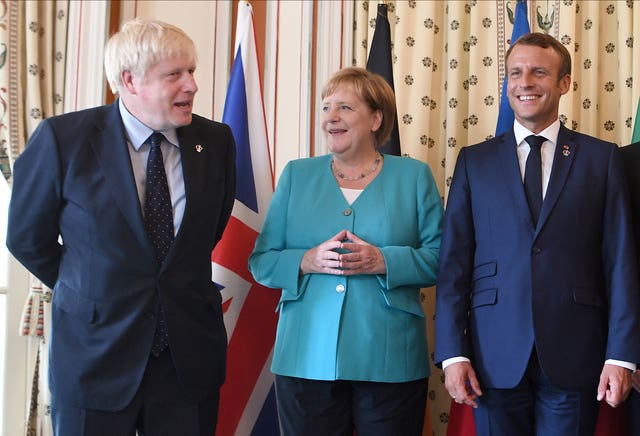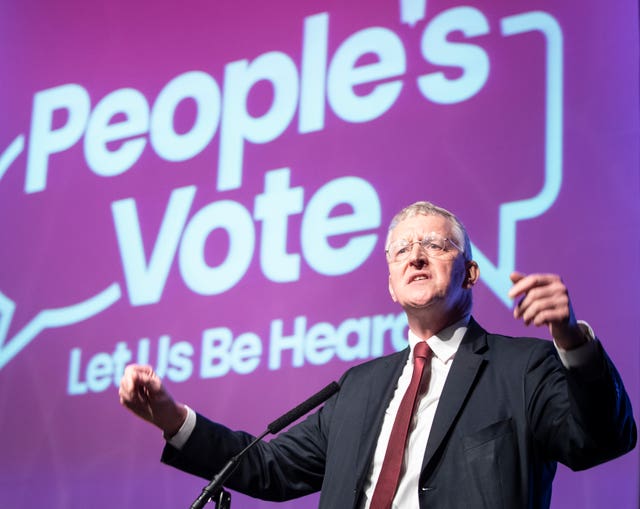Hurdles Boris Johnson must jump to pass his Brexit deal
The Government and the UK confirmed on Thursday that an agreement had been reached.

Boris Johnson has done what many of his critics suspected he was not even attempting to do – he has negotiated a Brexit deal with the European Union.
Having a deal signed off by the European Commission is only the first step, however, in ensuring Britain leaves before the October 31 deadline as per his “do or die” pledge.
Here are the steps Mr Johnson will now need to take.
– Get sign-off from the EU27

The power brokers in the European Union are always the member state leaders who make up the European Council.
They are all descending on Brussels on Thursday and will be, along with their officials, closely be reading the Withdrawal Agreement and Political Declaration on Britain’s future relationship with the EU.
If they are content with what is written on paper, they will give the Brexit deal the green light and Mr Johnson would have passed his first major hurdle.
– Secure Parliament’s backing
Downing Street has confirmed that, should the deal be backed by EU leaders and MPs agree to a Saturday sitting, Mr Johnson will put his deal to a meaningful vote – as required for Brexit to happen – on the weekend.
This looks be the hardest of tasks – the Conservative Party leader needs to secure a majority for his exit terms, despite leading a minority administration where Opposition MPs outnumber those on the Government benches.
He has also damaged his relationship with the DUP after appearing to ride roughshod over their concerns about the customs arrangement proposed for Northern Ireland in his deal, along with dissatisfaction over the consent mechanism for Stormont and the process for VAT.
The DUP has confirmed they were “unable to support” the proposals in Parliament.
It makes the numbers even tighter for the PM seeing as members of the European Research Group (ERG), a hardline band of Tory Eurosceptics, have said they would struggle to vote for a deal that does not have the DUP’s approval.
If the PM finds success in Westminster, he will then have to also hope that MEPs in the European Parliament give it the same backing – a point reiterated by European Commission president Jean-Claude Juncker in a joint press conference with Mr Johnson on Thursday.
– Fend off second referendum bids

Oppositions MPs have been talking about a “super Saturday” where the Commons votes on both the PM’s Brexit deal and also whether to subject it to a second referendum.
Former Liberal Democrat leader Sir Vince Cable called on MPs to back the deal and approve a confirmatory vote.
“We should now allow the deal to be passed by Parliament subject to a confirmatory referendum with the option to Remain,” he said.
Mr Johnson will have to fight off such amendments that would be supported by the Lib Dems, SNP and Greens.
Jeremy Corbyn, speaking in Brussels, would not speculate on whether Labour could support such a bid, saying: “It won’t come up on Saturday I suspect.”
– Pass all Brexit legislation
Should the PM prove successful in his meaningful vote, all attention will turn to passing the necessary legislation to make Britain’s EU withdrawal legally enforceable.
He would need to find a further majority for the European Union (Withdrawal Agreement) Bill in order to put Brexit on the statute books.
The transition period, lasting until to December 2020, will keep many of the current arrangements with the same, giving the Government further time to push through legislation on matters such as fishing, trade and immigration which relate to the EU divorce.
Asked whether the Government was confident of passing the required legislation before October 31 should a deal prove successful in the Commons, the Prime Minister’s spokeswoman told journalists on Thursday: “We have said a number of times the public would expect, if a deal is passed, for MPs to do everything they can to pass it on time and yes, we are confident that we can do that.”





